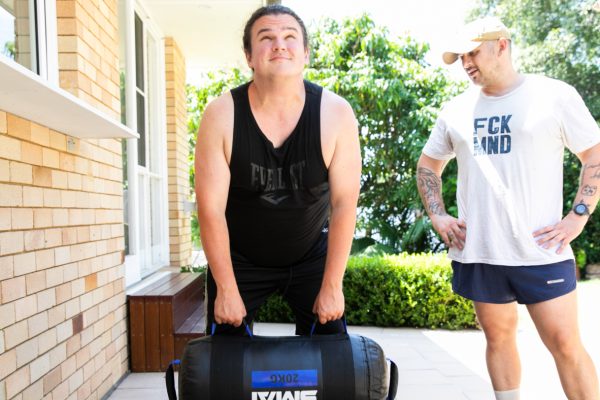
How keyworkers can shape positive outcomes for children
Here at Leap in! HQ we often hear from parents that managing multiple providers, therapies and appointments for their child can be stressful.
But there is a way to manage supports and services for young children that’s less hectic for families and easier for the child.
It’s called the key worker model and involves having one primary contact for your child’s development.
The key worker model is not a new concept to the NDIS but it’s not very well known. We look at what it is, the benefits and how to create an effective support team for your child and family.
WHAT IS THE KEY WORKER MODEL?
The key worker model involves choosing one primary therapist to coordinate all your child’s therapies, known as a “key worker”. A key worker is a highly qualified early childhood intervention professional who leads a team of providers and family members to support a child’s development.
Your key worker will understand your child and family’s needs, routines, relationships, interests and values. They use this knowledge and information to work with the family on strategies for the child to reach their goals at home, in education and the community.
Key workers are often employed by early childhood allied health and therapy services.
They build a team around the child, including family and other early childhood and health professionals.
Team members such as educators, psychologists, social workers, speech pathologists and occupational therapists provide discipline-specific support where needed. The key worker liaises with other care providers to share knowledge, develop schedules and help resolve any challenges.
Benefits of the key worker approach
HAVING A KEY WORKER CAN MAKE GETTING SUPPORT FOR YOUR CHILD EASIER AND FREE UP FAMILY TIME. HERE ARE SOME OF THE BENEFITS.
One point of contact: The family or primary carer has one point of contact for organising appointments, assessments, therapies, etc. which can save time and energy.
It’s family-centred: The key worker recognises that the family knows the child best. They work with the family and other team members to implement meaningful strategies for everyday routines and activities.
Child-focused: Therapy sessions can be provided in a more natural location for the child, such as at home rather than in a therapy centre.
A consistent approach: The key worker and team members communicate and collaborate for the child’s benefit, focusing on functional goals, sharing knowledge and coordinating appointments.
Centralised information: Information provided is more relevant to the child and family’s situation.
Fewer gaps in service delivery: The key worker ensures continuity of care and addresses any potential gaps in service delivery before they occur.
QUALIFICATIONS AND SKILLS FOR KEY WORKERS
A key worker is an early childhood special educator or relevant allied health practitioner such as a speech pathologist, occupational therapist, physiologist or paediatric professional. They should be degree qualified and have extensive experience in early childhood intervention.
Other essential skills are experience supporting children and young families, excellent communication skills and the ability to lead a multidisciplinary team of people.
The key worker in the team can change at any time to meet the child’s and family’s specific needs.
The role of key workers in the NDIS early childhood approach
- Acts as a team leader to ensure the team works together for the child’s benefit. For example, if your key worker is an occupational therapist, they may regularly communicate with other supporting therapists such as a speech therapist and physiotherapist.
- Provides advice and strategies to build a strength-based approach to everyday tasks and activities
- Teaches skills and builds capacity for caregivers and family members to support the child in their own environment
- Coordinates appointments to reduce family stress and create better opportunities for social and family time in the child’s schedule
- Coordinates communication and the sharing of knowledge and skills between the team.
CREATING AN EFFECTIVE TEAM FOR YOUR CHILD
If you think your child could benefit from a key worker and they don’t have funding in their plan, speak to your early childhood partner, LAC or NDIS planner.
NDIS funding for a key worker appears under Capacity Building supports in an NDIS Plan. It is a stated support, meaning it needs to be specifically allocated and listed and the funds can’t be used for any other purpose. It will be labelled as “early intervention (children under 9yrs)” and indicates that the funding is for a “key worker model”. Children under 9 are eligible for this funding under the early childhood approach.
If your child has this funding in their NDIS Plan and you would like to access the support of a key worker, speak to an allied health or early childhood provider to see if they have specialists in their team who are qualified in this area.
Given that a range of specialists can offer this service you might decide to choose a key worker whose professional background aligns with your child’s goals. For example, a physiotherapist may be a great choice if you child has goals relating to motor skills or balance.
By Leap in!
If you’re looking for an allied health or early childhood provider in your area, Leap in! has an extensive Provider Network Directory that allows you to filter by location, service type and more. Visit Leapin.com.au to find out how they can assist you and your family.






